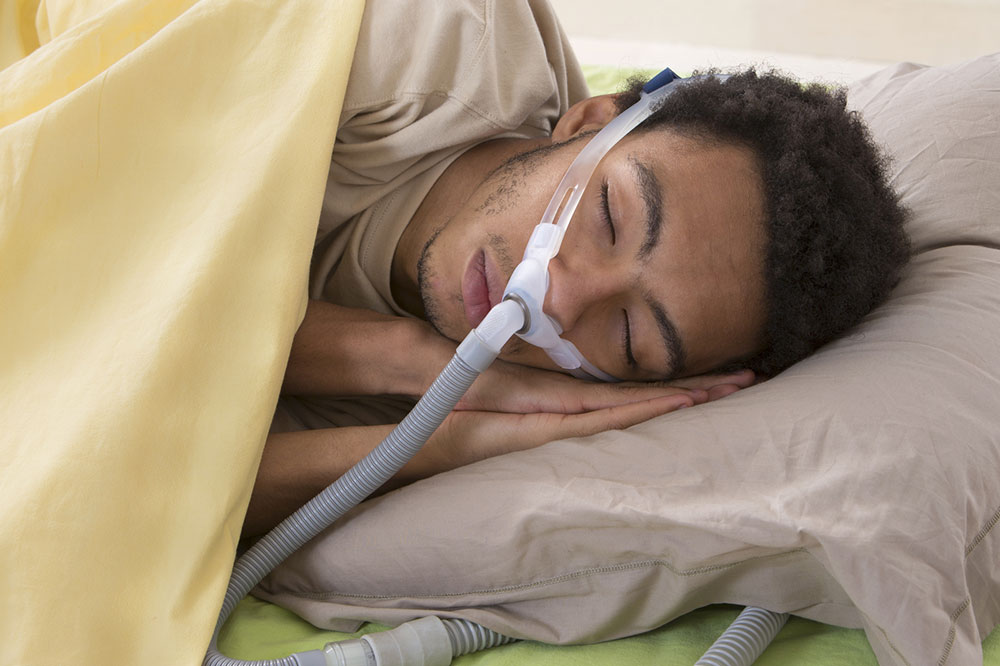
Sleep Apnea – Types and Causes
Sleep apnea is a sleep condition in which a person’s breathing repeatedly stops and starts. It may cause loud snoring, daytime tiredness, and restless sleep. While the condition may affect anyone, it is more common among older and overweight men.
Here’s a look at the types and causes of sleep apnea:
Types of sleep apnea
1. Obstructive Sleep Apnea (OSA)
OSA is caused due to partial or complete blockage of the upper airway during sleep.
2. Central Sleep Apnea (CSA)
This is related to the central nervous system function. CSA happens when your brain fails to signal the muscles to breathe. This causes slow and shallow breathing.
3. Complex sleep apnea syndrome
This occurs when a person has both OSA and CSA.
Causes of sleep apnea
1. Obesity
This is one of the leading causes of sleep apnea. Obesity causes fat deposits around the upper airway and makes it narrower. This may make breathing difficult. Studies have shown that even a 10% increase in weight may elevate the risk of OSA six-fold.
2. Anatomical characteristics
The positioning and size of your jaw, tongue, neck, tonsils, and tissues near the back of the throat may affect airflow. Individuals with thick necks may have narrow airways. Also, if the tonsils and adenoids enlarge, they can block the airway and hinder your breathing. All these factors may lead to obstructive sleep apnea.
3. Age
Both OSA and CSA are more common in older adults.
4. Family history
If one or more people in your family have this condition, the chances of you and other members suffering from it increases.
5. Sedatives and alcohol
Sedative medications often relax the throat tissues. This may obstruct the airways and cause OSA or CSA.
6. Smoking
Smoking cigarettes is one of the causes of obstructive sleep apnea. Studies have shown that the rate of OSA is higher among heavy smokers when compared with non-smokers. Smoking increases fluid retention and inflammation in the upper airway.
7. Nasal blockage
This is one of the causes of sleep apnea. Nasal congestion reduces the ability to breathe through the nose and leads to obstructive sleep apnea.
8. Sleeping on your back
When you sleep on your back, the tissues around the airways collapse and cause blockages. This may lead to snoring, restlessness, and obstructive sleep apnea.
9. Hormonal conditions
Hypothyroidism and excess of growth hormone may elevate the chances of obstructive sleep apnea. This happens because these hormone conditions swell up the tissues near the airways.
10. Medical conditions
Certain medical conditions, such as congestive heart failure, type 2 diabetes, high blood pressure, and Parkinson’s disease, increase the risk of both OSA and CSA sleep apnea.
These are some of the leading causes of sleep apnea in kids as well as adults. When left untreated, sleep apnea can lead to heart conditions and depression. Hence, if you or a loved one is having sleep problems and experiencing daytime drowsiness, consult a doctor without delay.


